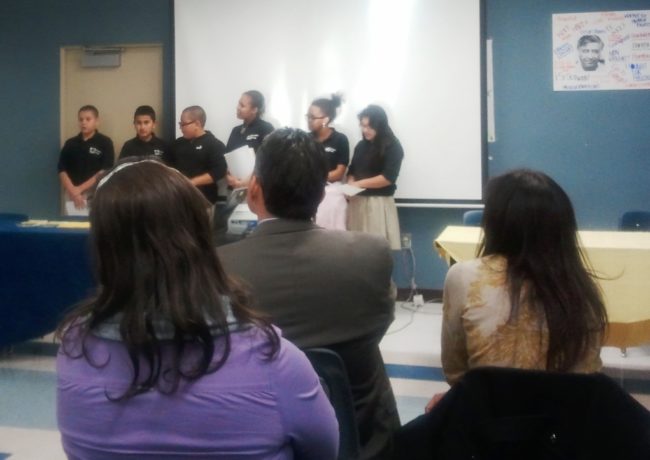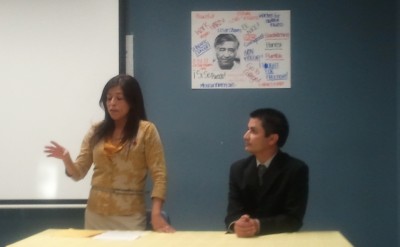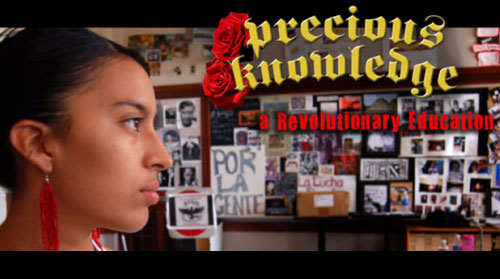Tiffany Mitchell, 7th grade history teacher at Cesar Chavez Public Charter School in Washington, D.C., describes how her students spoke about the ban on ethnic studies in Tucson on Cesar Chavez Day.
This past week we have studied the law against ethnic studies in Tucson, Ariz. At a community event held on March 29, “Honoring Farmworkers: A Celebration of Cesar Chavez,” several of my 7th grade students gave eloquent and passionate speeches. They connected Chavez’s fight for equal rights to the current civil rights issue of the access to ethnic studies courses in Arizona schools.

Students present to the community.
Here are some excerpts from the students’ presentations:
- If people don’t learn about other cultures, it leads them to make false assumptions about them. If ethnic studies is anti-American, then what does it mean to be American? —Alonna Hagans Garay
- America got here through different histories and that is what makes America great. We should learn about all histories because it can help unite us and understand how America got here. —Rahel Mideska
- People who think Latinos learning OUR culture will make us “anti–American” are being hypocrites and they are wrong. On the contrary, we will become anti-American if we don’t learn crucial facts about our cultures and others. We will feel left out and unimportant then we will drop out and make the world a worse place and our future generations will definitely not have an exemplary role model and we would not want them to follow those footsteps. —Lucas Martinez
- We all have a choice in life to use our voice or violence. Cesar Chavez knew this and he chose to use his mouth to organize, march and boycott to get people to join his cause. We are trying to do the same because kids should have a right to learn about their history. —Zayda Lopez
Among the many community members in attendance were two of Chavez’s grandchildren, Christine and Cesar Chavez.
Prior to the event, students had viewed the documentary Precious Knowledge and held a Socratic seminar.
After spring break, the history class is planning a trip to meet with lawmakers on Capitol Hill to express their concern as part of their public policy advocacy project. Our school’s English department has decided to teach the banned books.









Twitter
Google plus
LinkedIn